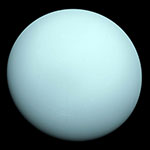 The Orbital Eccentricity Of Planets In Our Solar System
The Orbital Eccentricity Of Planets In Our Solar System
Orbital eccentricity is a measure of how elliptical or elongated the orbit of a planet or any celestial object is. It quantifies the departure of an orbit from a perfect circle. An eccentricity of 0 indicates a perfectly circular orbit, while an eccentricity close to 1 represents a highly elongated elliptical orbit.
In our solar system, most planets have nearly circular orbits with low eccentricities. However, some planets, such as Mercury and Pluto, have more eccentric orbits. The eccentricity of a planet's orbit affects several aspects of its motion and behavior.
The eccentricity of an orbit is determined by the planet's distance from the central body and the speed at different points along its orbit. Kepler's laws of planetary motion state that planets move in elliptical orbits with the central body located at one of the foci of the ellipse. The shape and size of the ellipse are determined by the eccentricity.
An eccentricity of 0 represents a circular orbit, where the planet maintains a relatively constant distance from the central body throughout its orbit. As the eccentricity increases, the orbit becomes more elongated, and the planet experiences greater variations in its distance from the central body.
The consequences of orbital eccentricity can be observed in various phenomena. For instance, when a planet is closer to the central body, it moves faster due to the stronger gravitational pull. Conversely, when the planet is farther away, it moves slower. As a result, a planet with a more eccentric orbit spends different amounts of time at different distances from the central body.
| Name | Ratio to Earth Value | ||
|---|---|---|---|
| Venus |  |
0.007 | 0.401 |
| Neptune |  |
0.01 | 0.677 |
| Earth |  |
0.017 | 1 |
| Uranus |  |
0.047 | 2.74 |
| Jupiter |  |
0.049 | 2.93 |
| Saturn |  |
0.052 | 3.38 |
| Moon |  |
0.055 | 3.29 |
| Mars |  |
0.094 | 5.6 |
| Mercury |  |
0.206 | 12.3 |
| Pluto |  |
0.244 | 14.6 |

